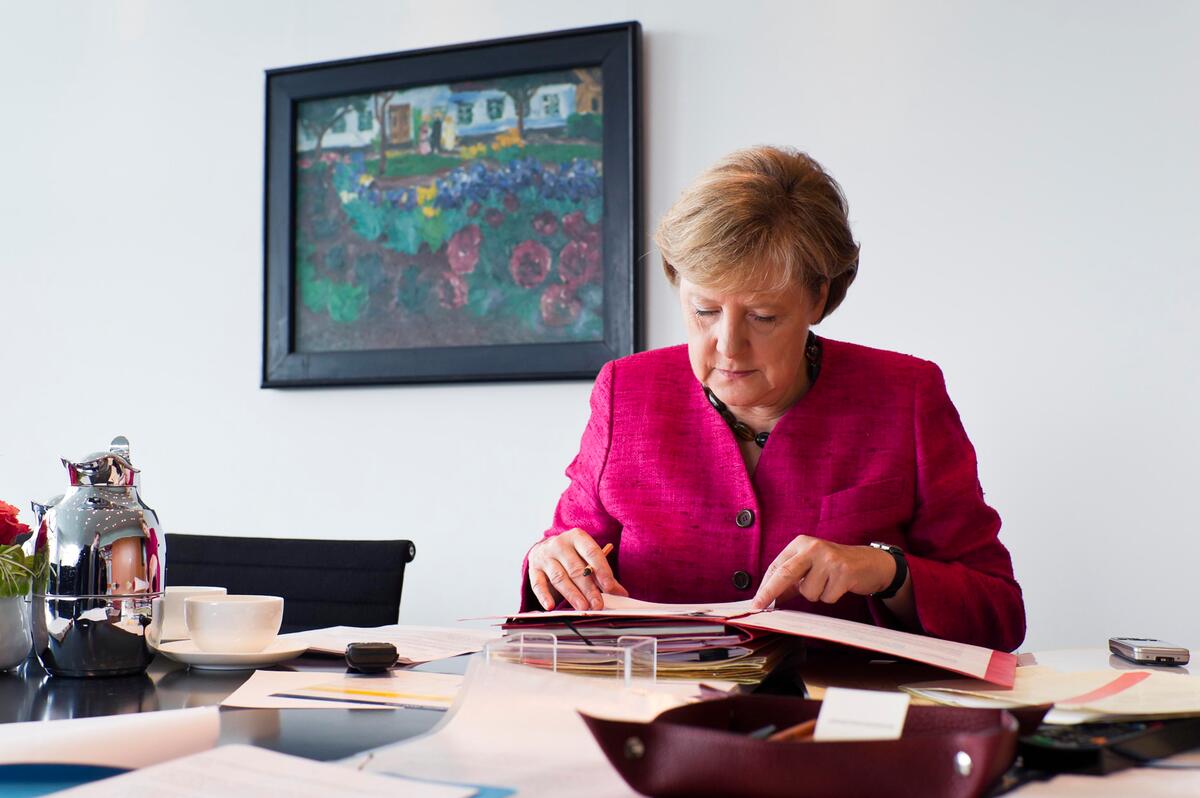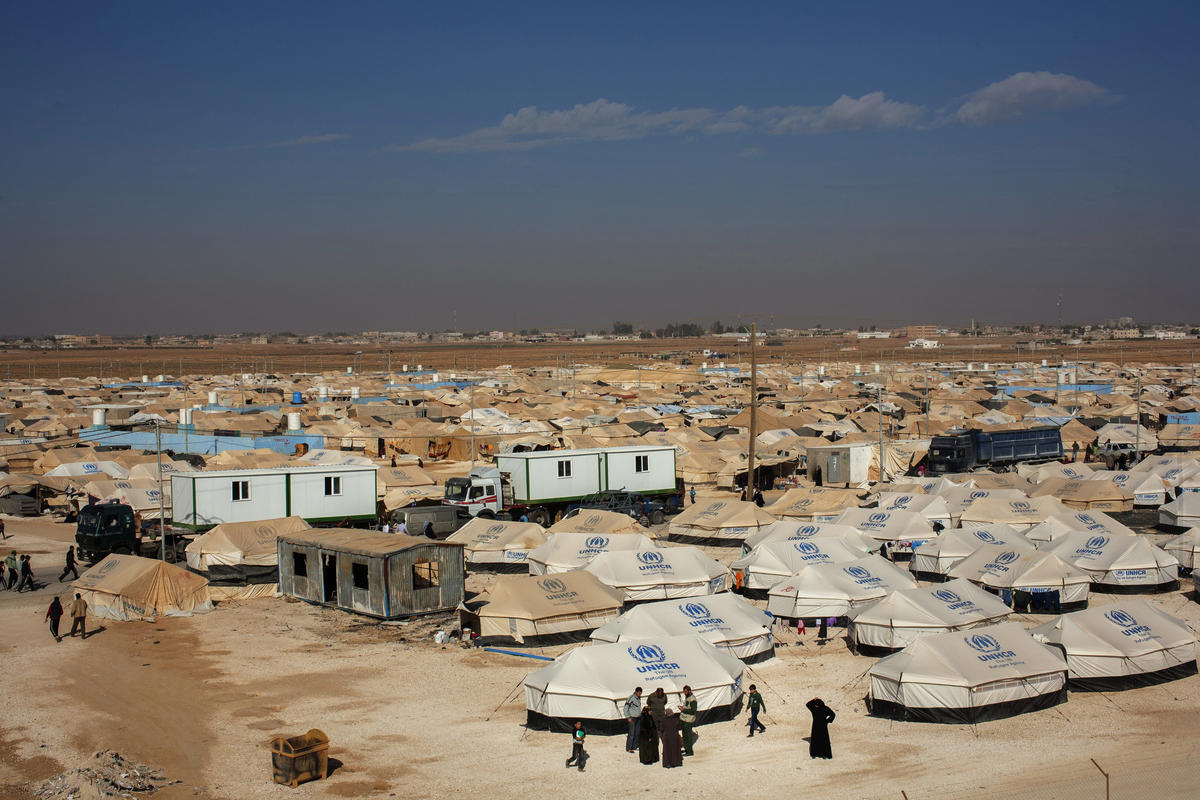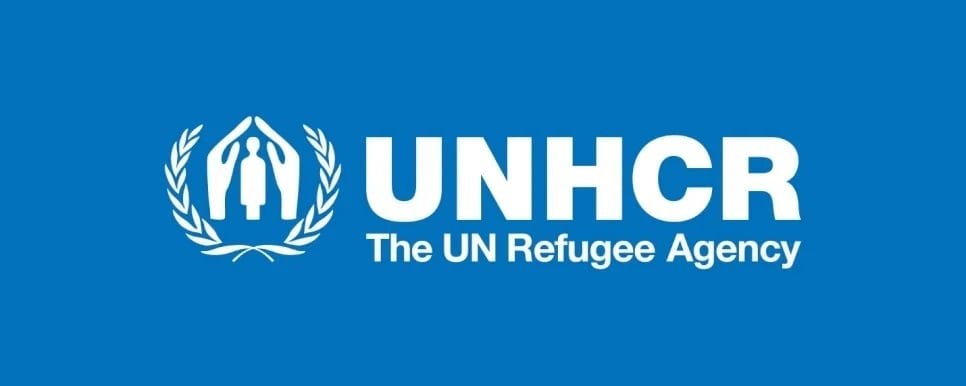Bulgaria struggles to cope with Syrian influx at dilapidated camp
Bulgaria struggles to cope with Syrian influx at dilapidated camp

HARMANLI, Bulgaria, November 21 (UNHCR) - Every five days, teenage refugee Atar receives his food ration for the next five days: a loaf of bread, one jar of a locally produced salsa, a can of paté and a tin of canned fish in tomato sauce.
"It's barely enough to eat for lunch, let alone breakfast and dinner," the 16-year-old Syrian refugee told UNHCR in Bulgaria's squalid, crowded Harmanli camp, where about 1,100 people, including 300 children, languish in containers and tents without adequate heating or sanitation facilities and limited access to health care.
The food rations are provided by the Bulgarian government, which has housed around half its 8,000 asylum-seekers in seven state-sponsored accommodation centres. The rest have found their own place to stay. But the state facilities, filled to capacity with Afghans, Iraqis, Malians, Palestinians, Syrians and Somalis, provide only basic services.
The most crowded and dilapidated is Harmanli, a former military base located 50 kilometres from the Turkish border. Opened on October 12, almost all of the asylum-seekers there are refugees from Syria. The camp is not a good advert for the Europe that growing numbers of Syrian refugees seek when they cross from Turkey into Bulgaria, the European Union's poorest member state. The country on the edge of south-east Europe is ill-prepared or equipped to deal with the growing influx and, like the main hosting nations, it seeks help from the European Union and other member states.
"When refugees fleeing persecution and war do not receive food or medicine in the European Union, there is something that has gone awfully wrong. Efforts needs to be redoubled to bridge the gap between the promises made to help Bulgaria to meet these needs and the dire reality of destitute people freezing in their tents and containers," said Vincent Cochtel, director of UNHCR's Europe Bureau, said after visiting the camp today.
While glad to be out of their embattled homeland, no longer threatened by bombs and sniper fire, many of the Syrians complain about the conditions, especially as the weather has started to get colder. When the camp opened, the first 450 asylum-seekers were housed in pre-fab cabins, but subsequent arrivals live in tents designed for the summer.
Thin canvas is the only protection from the elements for 24-year-old Jazia and her extended family. "These conditions are not suitable," stressed the teacher from Hassakeh in north-east Syria. "We are freezing at night," she said, adding that they had no heaters. The local authorities have started distributing some heaters, but the cold remains a problem.
Some children are catching fevers and colds, but there is no health clinic in the guarded camp and people lack funds to buy medicine. Serious cases have to be taken to the nearest hospital, but not all those with serious medical problems are getting the help they need.
Four-year-old Diar has leukaemia. He needs regular blood transfusions and has to take medication that treats chronic iron overload in patients undergoing repeated transfusions. But his family lost his supply during their flight from Syria earlier this year. Now, Diar's parents cannot afford to pay for this life-saving medicine, which costs US$300 for a month's supply. "What can we do?" asked Diar's father. It's a dilemma for him and the stretched government, which has not yet been able to register the family's asylum claim.
To make matters worse for the Syrians in Harmanli, the camp's waste and sanitation facilities are stretched to the limit. Although municipal garbage trucks visit on a daily basis, the camp grounds are still carpeted in litter. The bathing facilities are also inadequate: more than 500 people living in the tents and dormitories must share 10 communal latrines. Those in the pre-fab homes have their own lavatories.
For many in Harmanli, using the bathroom at night means walking the length of the compound, a ritual that is potentially unsafe and clearly uncomfortable for some. "I'm a woman," said Jazia. "We didn't live like this in Syria."
And then there's the problem of nutrition and food shortages that the teenager Atar complained about. Regular food is necessary for keeping healthy and for building up resistance to disease. It's also vital for pregnant women - there were about a dozen pregnant women when UNHCR visited.
But the camp's population has proven resourceful, using paper waste to fuel fires, cook meals, heat water and counter the freezing temperatures at night. Local Bulgarians are also doing what they can to keep Harmanli's fires burning, but donations cannot meet the needs.
"Until last week, we cut branches from the trees for fuel, but then the police brought more firewood yesterday," said 25-year-old Mahmood, pointing to a neat pile of chopped wood stacked against the family's shelter. He was using some of the firewood to boil water in an empty baked beans can. "This boiling water is for the baby milk," Mahmood explained.
Despite the poor conditions, some refugees are keeping their spirits up by thinking of the future. Atar, who made his way to Turkey and Bulgaria after leaving his family in the northern Syrian city of Aleppo, said he had contacted an aunt who lives in Bulgaria and hoped he could stay with her. "My dream is to study in the UK. I want to become a lawyer," he said.
Issam, aged 33, just wanted to be reunited with his wife and children, whom he was forced to leave behind in Damascus. First, Issam must leave Harmanli, but before anyone can go, the Bulgarian State Agency for Refugees must register the camp's inhabitants - a process that may take time. With winter approaching, that's a prospect that worries many.
By Boris Cheshirkov in Harmanli, Bulgaria




















